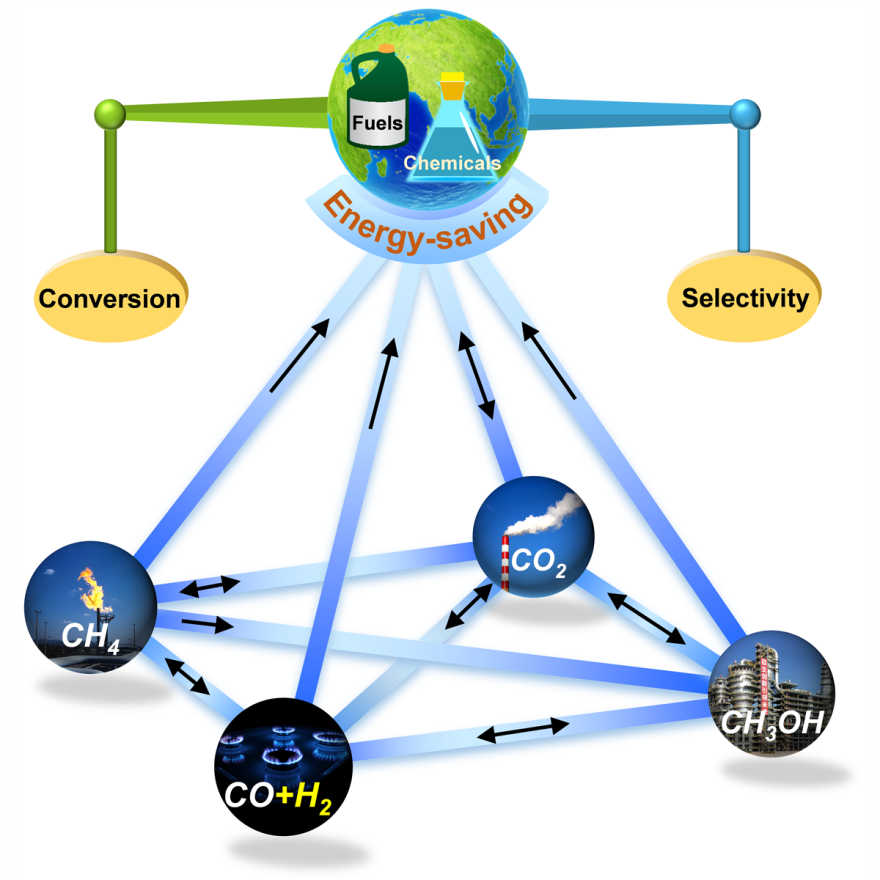Catalytic conversion of one-carbon (C1) molecules, such as methane, carbon monoxide, carbon dioxide and methanol, into fuels and value-added chemicals is an important process in chemical industry.
The most current C1 conversion processes in industry suffer from high energy consumption, complex processes of multi-step reactions, and product separations. Developing C1 molecules oriented conversion technology under mild conditions remains challenging.
Recently, a research group led by Prof. DENG Dehui and Prof. BAO Xinhe from the Dalian Institute of Chemical Physics (DICP) of the Chinese Academy of Sciences (CAS) summarized recent advances in catalysis for selected C1 chemistry in the last decade.
The perspective article was published in Chem on Sept. 24.

Schematic illustration of reaction pathways and keypoints in C1 chemistry (Image by LIU Yanting)
The researchers discussed the current status and challenges in this research area with an emphasis on the development of novel reaction processes for C1 conversions under mild conditions by thermo-, electro-, or photo-catalysis, and the future directions of the C1 chemistry.
"Exploring novel catalytic processes would open paths for the conversion of C1 molecules under mild reaction conditions. Meanwhile, developing in situ and operando characterization techniques for the effective identification of the structural evolution of catalysts as well as the deep understanding of the catalytic active centers could provide a guide for the synthesis of catalysts," said Prof. DENG.
This work was supported by the National Key R&D Program of China, the National Natural Science Foundation of China, the Key Research Program of Frontier Sciences of the Chinese Academy of Sciences, the Strategic Priority Research Program of Chinese Academy of Sciences, and the DNL Cooperation Fund, CAS. (Image by LIU Yanting)